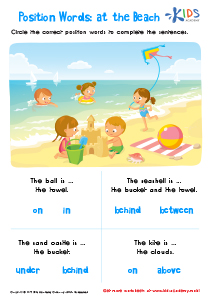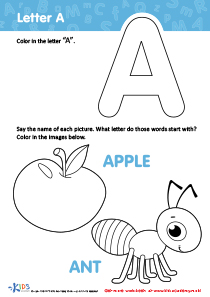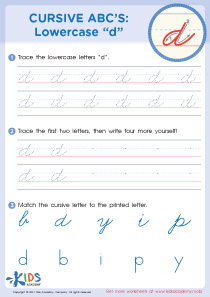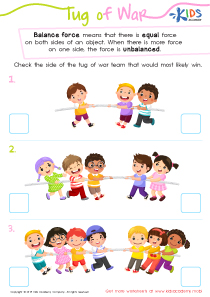4 results
4 filtered results
Clear all filters4 filtered results
-
From - To
Introducing our captivating Interactive Assessment Quizzes, meticulously crafted for 5-Year-Olds exploring the intriguing world of Data! These engaging quizzes are designed not only to check your child's understanding but also to provide valuable feedback, facilitating a fun and educational experience. As your child navigates through each quiz, they'll dive into the basics of data, learning through interactive questions that captivate their curiosity. Perfectly tailored for young minds, our Data for 5-Year-Olds quizzes promise a delightful journey into the realm of learning, ensuring a strong foundation in data comprehension. Join us and watch your child's knowledge and confidence soar!
Interactive quizzes on data specifically designed for 5-year-olds can play a crucial role in enhancing their learning journey. At such a formative age, children are naturally curious, soaking up information and making sense of the world around them. By engaging them with content tailored to their understanding, we can significantly impact their cognitive development and foster a love for learning early on. Here's how these specialized assessments in data for 5-year-olds are beneficial to their studies.
Facilitating Understanding Through Play
One of the core advantages of interactive quizzes is their ability to disguise learning as play. For 5-year-olds, the concept of data might seem abstract and complex, but through well-crafted quizzes, these young minds can grasp basic data interpretation skills in a fun and engaging way. This playful approach not only holds their attention but also encourages active participation, which is vital for learning at this stage.
Building Foundational Skills
Interactive quizzes on data for 5-year-olds are not just about learning data; they are about building foundational skills. These quizzes teach children how to recognize patterns, understand quantities, and even begin to grasp the concept of categorization. These are all critical thinking skills that will benefit them across all subjects, not just in understanding data. By starting young, children develop these skills early, making future learning in more complex subjects much easier.
Encouraging Independence
Interactive quizzes offer an opportunity for 5-year-olds to take control of their learning. With intuitive interfaces designed for young learners, these quizzes encourage children to think and answer independently, fostering a sense of achievement and confidence. This early independence in learning can have long-lasting effects on their educational journey, making them more likely to take on challenges and explore new concepts on their own.
Personalized Learning
One size does not fit all when it comes to learning, especially for young children. Interactive quizzes on data can be tailored to suit the individual learning pace and level of each 5-year-old. This personalized approach ensures that children are neither bored by content that is too easy nor overwhelmed by concepts that are too difficult. By catering to the unique needs of each child, these quizzes can effectively support their learning journey, making the study of data accessible and enjoyable.
Enhancing Retention Through Repetition
Repetition is a key factor in learning, particularly for young children. Interactive quizzes provide a dynamic platform for repetition without the monotony. Through repeated exposure to concepts in varied and engaging formats, children are more likely to retain information. This reinforcement helps solidify their understanding of data, making it a part of their knowledge base that they can build upon as they grow.
Conclusion
In conclusion, interactive quizzes on data for 5-year-olds are a powerful tool in the educational arsenal. By making learning fun, building foundational skills, encouraging independence, providing personalized learning experiences, and enhancing information retention, these quizzes prepare children not just in the study of data but for a lifelong learning journey. As we continue to innovate in education, integrating such interactive assessments will undoubtedly play a pivotal role in shaping the learners of tomorrow.











